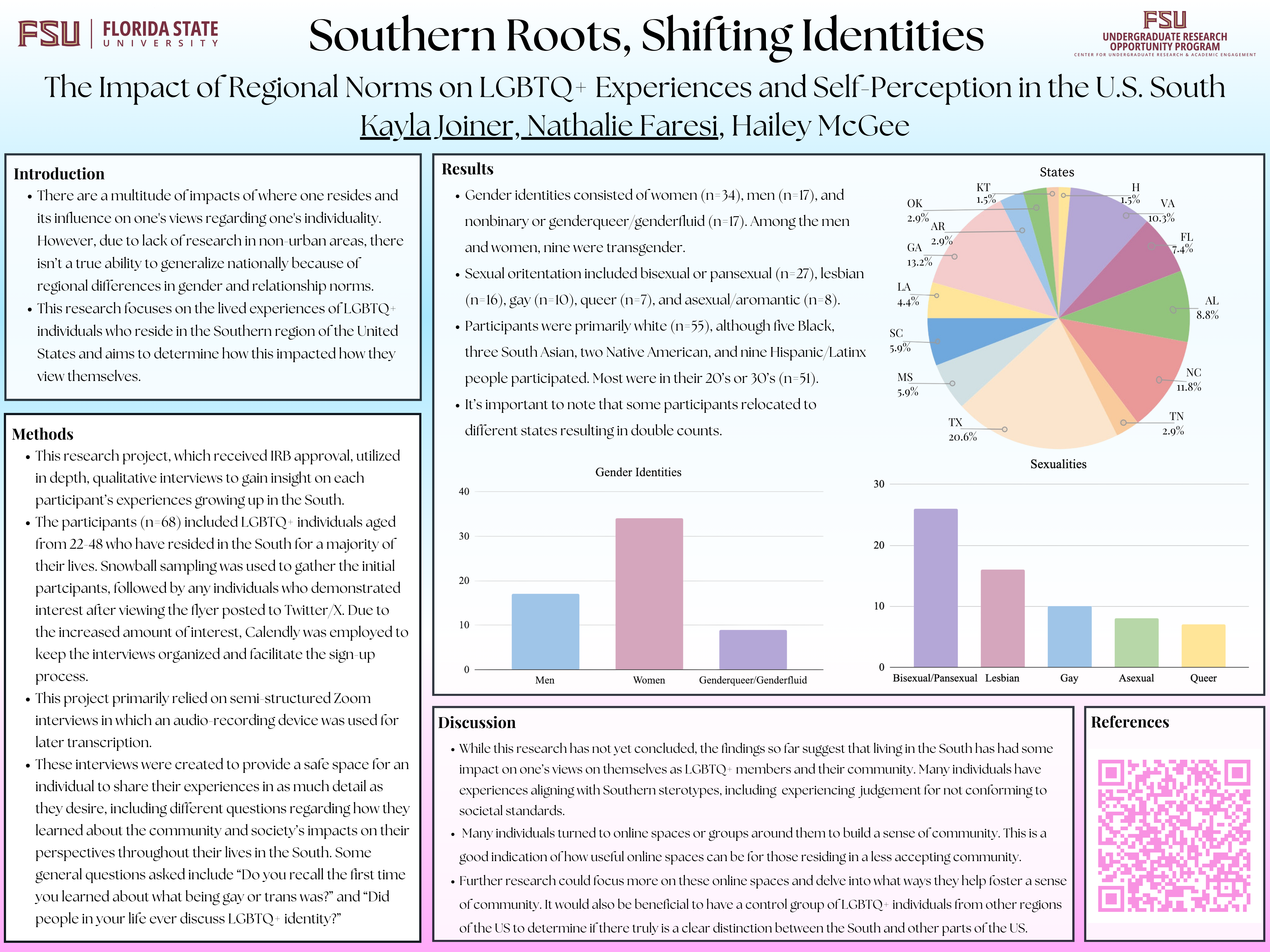Research Symposium
25th annual Undergraduate Research Symposium, April 1, 2025
Nathalie Faresi Poster Session 1: 9:30 am - 10:30 am / Poster #155

BIO
Hi, my name is Nathalie Faresi, and I'm a sophomore studying Behavioral Neuroscience with a minor in Chemistry on the Pre-Med track. Originally from Delray Beach, FL, I’m passionate about exploring how neuroscience, psychology, and medicine influence one another, and focused on building a well-rounded education that looks at issues from as many different angles as possible. I’m eager to expand my research experience throughout my undergraduate years, not just to gain experience, but to contribute to meaningful discoveries!
Southern Roots, Shifting Identities: The Impact of Regional Norms on LGBTQ+ Experiences and Self-Perception in the U.S. South
Authors: Nathalie Faresi, Hailey McGeeStudent Major: Behavioral Neuroscience
Mentor: Hailey McGee
Mentor's Department: Sociology Mentor's College: Social Sciences and Public Policy Co-Presenters: Kayla Joiner
Abstract
There are a multitude of different impacts of where one resides and its influence on their views regarding their individuality. This research focused primarily on the lived experiences of LGBTQ+ individuals who reside in the Southern region of the United States and aimed to determine how this impacted how they view themselves. The methods used for this research study include semi-structured interviews which consisted of a one-on-one interview between the interviewer and individual where a set of questions were asked to each participant, including follow-up questions that the interviewer felt necessary. Some general questions asked include “Do you recall the first time you learned about what being gay or trans was?” and “Did people in your life ever discuss LGBTQ+ identity?” While this research has not yet concluded, the findings so far suggest that living in the South has had some impact on one’s views on themselves as LGBTQ+ members and their community. Many individuals have experiences aligning with Southern stereotypes, including experiencing judgement for not conforming to societal standards. As a result, individuals tended to turn to online spaces or groups around them to build a sense of community. This is a good indication of how useful online spaces can be for those residing in a less accepting community and further research could focus more on these online spaces and delve into what ways they help foster a sense of community.
Keywords: LGBTQ+, South, Identity

